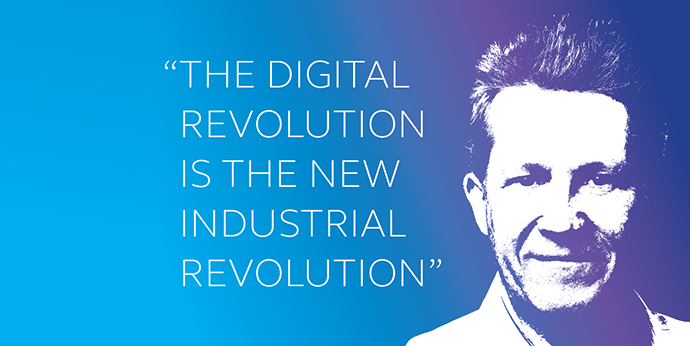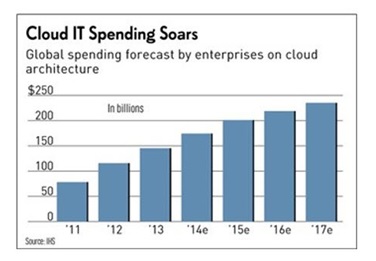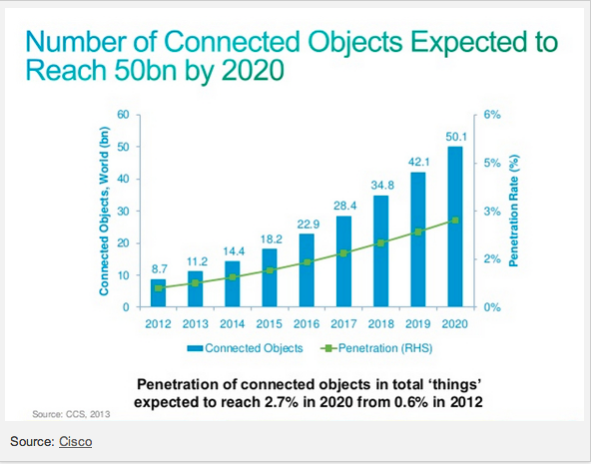Jo Aidroos is an early technologist and engineer by qualification. She leads Slalom Consulting's Organisational Effectiveness Practice in London. Here we share an article of hers that explains how storytelling can be effectively used by companies to generate an optimum blend of fact and fantasy that will engage and inspire their audience.

How the science behind storytelling leads to more powerful corporate engagement
People forget what you say, they forget what you do, but they don’t forget how you make them feel. Feelings create memories that generate long lasting and powerful impressions on those listening to you, and storytelling has become a formidable "corporate tool" in creating feelings of engagement in the workplace.
Over the last five years cryptocurrency has been an emerging theme that has attracted attention from both the media and investors.

The sentiment towards these new forms of digital money varies from excitement to scepticism but there still remains a widespread lack of public understanding.
To help with some clarity, we look to explain three of the widely used terms:

In decades past, virtual reality (VR) was often thought to be the next big thing. Except it wasn’t. Despite previous attempts to produce ‘killer’ products, mainly in the gaming domain, it ultimately didn’t take off. At least not yet.
However there are signs that the hype is returning as major technology companies are again placing their bets in this space. In 2014, Facebook purchased VR company Oculus Rift for $2bn, a company founded only two years earlier.
Along with VR, interest is also picking up in another form of reality - augmented reality (AR). Google (Glass) and Microsoft (HoloLens) have both developed and publicised new hardware products in this area.

In 2014 the UK economy is expected to grow by close to 3%. The OBR’s current growth forecast for 2015 is 2.4%. The UK has been the fastest growing G7 economy with unemployment steadily declining.
Here we take a look at ten risks to the outlook for UK growth in 2015.
Euan Semple is a public speaker, writer and executive coach. He helps organisations utilise and understand social media, showing its potential within the workplace. Here we share an article of his addressing the growing need for awareness in the era of big data, as more of our lives become digitised.
Big Data and Social - a Match Made in Heaven or Hell?
In the early days only big organisations could do computing and there were going to be five computers in the world.
We all know how that ended up.
Then only big organisations could do networking infastructure and getting online was the preserve of the workplace. But these days we carry ubiquitous network access 24 hours a day in our pockets.
Now we are led to believe that only big organisations can do big data. But it is our data. We are becoming increasingly aware what is done with the data, by whom, and for what. We are starting to care." - Doc Searls, co-author of The Cluetrain Manifesto and more recently The Intention Economy.

Digital disruption will continue to shape 2015. There will be more devices, more connections and more data, as more and more ‘things’ become smarter. Whilst not necessarily new, here are ten themes we will be tracking over the course of 2015.
1. Artificial Intelligence (AI) – Rise of machines or resentment of machines?
Professor Stephen Hawking warned of the threat AI poses to mankind. 2015 is considered a little early for super-intelligent machines to display general intelligence, however computers are becoming increasingly smarter at specific tasks. Some companies are now starting to implement AI to perform back office jobs. There will also be further developments with voice activated personal assistants, as more data lends to smarter and more personalised responses.

Small and medium enterprises account for 99.9% of all private sector businesses in the UK and play a critical role in long term growth prospects of the UK economy. In the era of the digital revolution, many of these companies are investing in ideas and intangibles creating intellectual property (IP). In some cases, IP may be their only asset. Consequently, IP is crucial to their ability to grow and attract further investment. An IP strategy is a key component of the overall business strategy.
When assessing investment opportunities, equity investors often place great importance on a company’s IP. It can underpin the ability of a business to defend its position by providing exclusive use of an invention or method and prevent others from copying. This can be the difference between success and failure.

Eleven Canterbury is a global expert network of C-suite executives and seasoned experts. They look to help technology companies increase enterprise sales, act as subject matter experts for litigation cases, as well as mentor and coach sales and entrepreneurial management teams. Delta2020 Managing Partner and Eleven Canterbury Senior Advisor Simon Thorpe is featured in their inaugural monthly edition of Executive Spotlight.
Executive Spotlight: Simon Thorpe
He's worked in equity research, sales and capital markets with major institutional investors and corporates across all sectors. He's been an active angel investor in UK companies with a focus on the technology sector. A member of Cambridge Capital Group (CCG) and a participating mentor at Accelerate Cambridge and Angel Academe. He's also a Senior Advisor at Eleven Canterbury.
What's the most important question someone should ask before they hire an advisor?
Do you understand my business?
It is estimated that only 18% of SMEs were led by women in 2012 (1). Currently less than 5% of venture capital is invested in women (2) and it is thought that just 5% of UK angel investors are female (3). Why might this be the case? Various theories are put forward, such as people tend to invest in people just like themselves i.e. men invest in men, and that less women study STEM (Science, Technology, Engineering and Mathematics) subjects, that may lead to the creation of the type of businesses angels look to fund. One of the ways to address this imbalance is by backing more women led businesses to create a greater number of successful women entrepreneurs and subsequently more female angel investors.
Why invest in women? There is data coming from the US that women led businesses produce favourable returns for investors and it would be great to see more of this in the UK.
Delta2020 is a keen supporter of ambitious female-founded and led businesses and its partners currently have investments in the following:
While on work experience, Ross Mcgowan of Bishop Stortford College looked into the role the cloud is playing in the digital revolution.
What is “The Cloud?”
The cloud is formally known as cloud computing. It refers to storing and accessing data and programs over the Internet instead of locally stored on a computer's hard drive. Therefore “the cloud” is simply a metaphor for the Internet.
The majority of people use a cloud computing system on a daily basis e.g. any email which can be accessed from the internet can be considered cloud computing. By 2017, it is forecast that enterprise spending on the cloud will reach $235.1 billion.

The 'Internet of Things' is often talked about as one of the next big things but what exactly is it and what are its applications? While on work experience, James Higgins of Bishop Stortford College looked into the subject.

What is IoT?
The “Internet of Things” (IoT) refers to everyday objects being connected across a network that can interact and communicate with each other. By 2020 the number of connected objects is expected to reach 50 billion devices. Each ‘thing’ requires its own IP address in order to connect, which was one of the obstacles under the previous ipv4 network address system due the limited availability of addresses.Thanks to the new ipv6 network, which allows for a greater number of IP addresses, it is now possible for over 100 billion devices to be connected to the Internet. Such devices are often referred to as ‘Smart’ products. From cars to cookers - it’s a connected revolution.
The UK population grew by 400,000 last year to 64.1 million people according to the ONS. This represents a rise of 0.63% on the previous year and saw the UK experience the largest population increase of the four most populous EU member states and higher than the overall EU average. Net migration represented 46% of the rise, while just over half was accounted for by the birth rate.
Almost all the UK has experienced population growth, with London rising the fastest, having seen an increase of 108,000 – a quarter of the UK population growth.